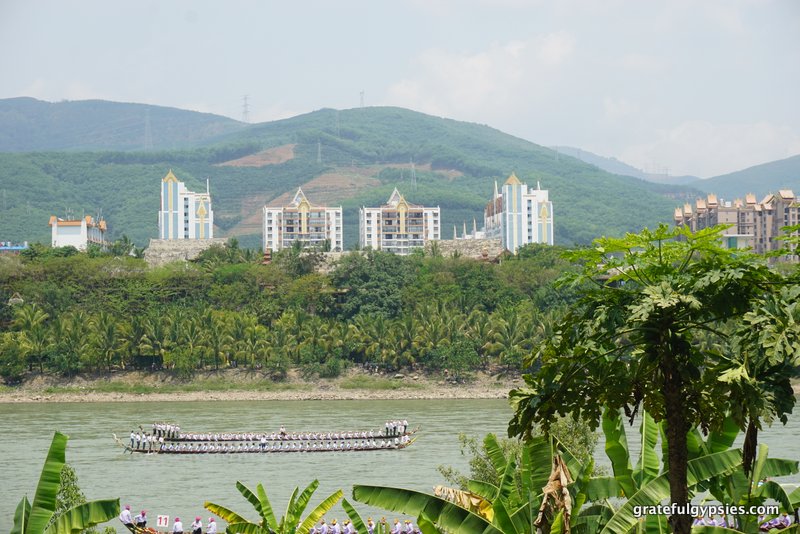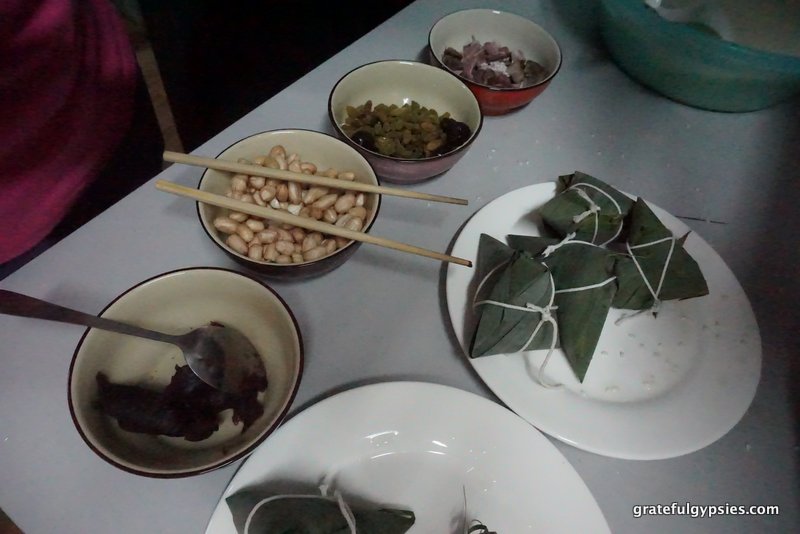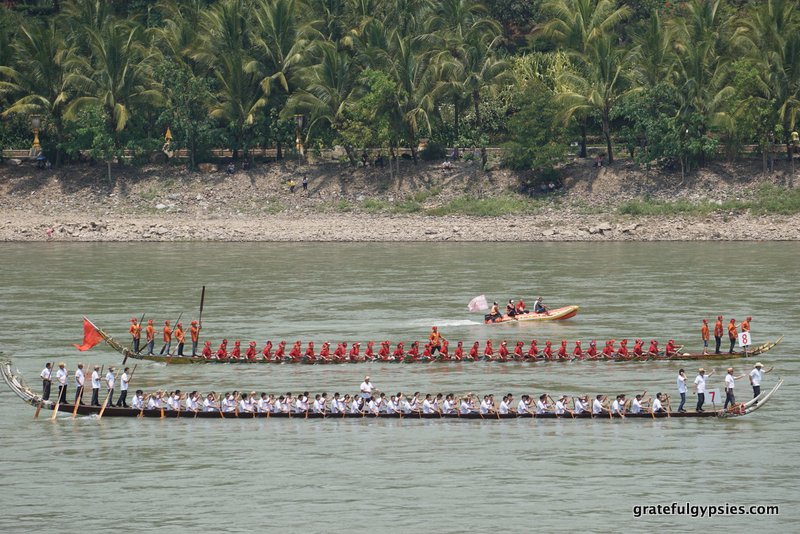The Chinese Dragon Boat Festival Posted by sasha on Jun 22, 2020 in Culture
On the 5th day of the 5th lunar month, China celebrates the Dragon Boat Festival (端午节 – duān wǔ jié). This year the holiday falls on June 25th. It has been celebrated in China for thousands of years, but it has only been a public holiday since 2008. Learn all about this traditional holiday in this post, starting with the name.
Duan Wu Festival
In case you were wondering, 端午 does not actually mean “dragon boat.” Rather, the Chinese name of this festival refers to the time of year. On their own, 端 means “extreme” while 午 means “noon.” That’s because the Dragon Boat Festival falls at a time when the sun is at its highest point in the sky.
Dragon Boat Festival History and Qu Yuan
The most common legend associated with the Dragon Boat Festival is that of Qu Yuan (屈原 – qū yuán). He was a poet and a statesman during the Warring States Period (战 国时代 – zhàn guó shí dài).
Unfortunately, Qu Yuan was banished due to disagreements with the king. He went into exile and wrote some of the most famous poetry in Chinese literary history.
Perhaps his most notable work was part of Chu Ci (楚辞 – chǔ cí), or “The Verses of Chu.” His poem titled Li Sao (离骚 – lí sāo) is usually translated as “Encountering Sorrow” or “The Lament.” In it, he laments the corruption in his kingdom and the fact he has been exiled from it.
This epic poem is one of the longest from ancient China, at over 350 lines and 2,400 characters. If you’re up for a challenging reading exercise, you can click here to read the whole thing. You can also follow along with this YouTube video to hear it read out loud:
For a more detailed look at the man and his work, be sure to read my post from last year:
When Qu Yuan heard the news that his former kingdom had been overtaken, he tragically committed suicide by jumping into the Miluo River (汨罗江 – mì luō jiāng) in Hunan province. As he was a beloved figure, people went out into the river in boats to try and recover his body, or at least scare the fish away from eating it…
Speaking of eating, the people tossed sticky rice wrapped in bamboo leaves into the water. This was meant to be for Qu Yuan in the afterlife and the leaves ensured that fish wouldn’t get to it.
This is where the two most common customs of Dragon Boat Festival come from.
Dragon Boat Festival Customs
To this day, people still make sticky rice wrapped in bamboo leaves. It’s called zongzi (粽子 – zòng zi) and it’s a big part of the Dragon Boat Festival. A variety of fillings can be used in the sticky rice. Some of the most common include red bean paste (红豆沙 – hóng dòu shā) and pork belly (五花肉 – wǔ huā ròu).
While I’m sure some traditionalists still toss a zongzi or two into the river, most people just eat them. They are a very common item in supermarkets this time of year, but it’s even more fun to make them at home!
I’ll give you a few options for making your own zongzi. Here’s a great recipe (食谱 – shí pǔ) for it that’s all in Chinese (click here) – there are pictures to help you out as well. You can also follow this video which is in Chinese and has English subtitles:
I made zongzi with some friends at a house party a few years ago and had a great time. I’m not the biggest fan of them, to be honest, but it’s a fun way to celebrate the holiday and practice your Chinese!
Of course, the most famous custom of the holiday is the epic dragon boat race (龙舟赛 – lóng zhōu sài). A dragon boat is typically made of wood and is about 40 feet (12 meters) long.
As you could probably guess, they usually resemble a dragon with the head at the front and a tail at the back.
Not all dragon boat races are the same, though, as this great video from National Geographic shows:
The standard number for a team is 22. There are 20 people paddling the boat as well as a drummer and a steerer. The drummer is basically the heartbeat of the boat, telling the team how fast to paddle.
It’s really exciting watching a dragon boat race in person. Some of the best places to see one include the Qingshui River (清水河 – qīng shuǐ hé) in Guizhou and the Xixi Wetlands National Park (西溪国家湿地公园 – xī xī guó jiā shī dì gōng yuán) in Hangzhou.
As you may expect, the Miluo River where Qu Yuan drowned also hosts a Dragon Boat Festival celebration every year.
For more on the customs of Dragon Boat Festival, be sure to read Ayana’s excellent post:
Dragon Boat Festival Video
Last but not least, here’s a little video I put together about the Dragon Boat Festival. You’ll get to see some exciting clips from a dragon boat race in the south of Yunnan province in an area called Xishuangbanna (西双版纳 – xī shuāng bǎn nà) at the end, so be sure to watch it all!
Video Vocabulary
端午节 – duān wǔ jié
Dragon Boat Festival
屈原 – qū yuán
Qu Yuan
粽子 – zòng zi
zongzi (rice dumplings)
雄黃酒 – xióng huáng jiǔ
realgar wine
龙舟赛 – lóng zhōu sài
dragon boat race
端午节快乐 – duān wǔ jié kuài lè
Happy Dragon Boat Festival
I hope you’ve enjoyed this post about the Chinese Dragon Boat Festival. It’s one of my favorite holidays to experience in China and I hope you get the chance to celebrate it there some day as well!

Build vocabulary, practice pronunciation, and more with Transparent Language Online. Available anytime, anywhere, on any device.







Leave a comment: